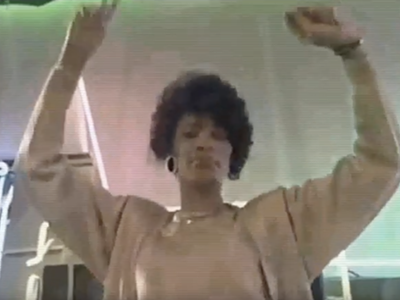Achieving longevity in music is not easy. And if a musician can't adapt, things likely won't work out. For hip-hop artist, activist, and teacher Jahshua Smith, finding a balance has been key.
"I like being at that part of my life where I can be half educator, half performer," he says. "It's harder when you get older if you're not on a certain level. I try and teach a lot of the kids that we work with that you have to know the different levels of what it takes to be comfortable doing music."
For Smith (formerly known as JYoung The General), who was raised in Detroit and came of age in Lansing while attending Michigan State University more than a decade ago, figuring out those levels has meant accepting there isn't a linear path to "making it" as a rapper — and it's certainly not guaranteed. And while most musicians won't headline a global arena tour, changing people's lives through music — and having a positive impact on your community — is still very possible.
"When we were young, the goal was to get big and go on tour," recalls Smith. "We wanted to be famous. Be Kanye famous. Be Jay-Z famous. Be Beyoncé famous. As you get older and recognize where you're at, you realize, 'OK, I might not be that famous; let me get on a record label.' Then later you think, 'Maybe being on a record label isn't the move for me. Let me be an independent musician and do what I can to achieve a good standard of living.'"
In Smith's case, that's meant working as an educator in Brooklyn, Washington D.C., Lansing, and eventually making his way back to Detroit in an advisory role for the Michigan College Access Network (MCAN). All this while consistently releasing full-length albums, performing high-energy shows, and facilitating seminars about the power of hip-hop literacy at academic conferences around the country.
"I started realizing what's really going to keep me connected to what I love is gradually phasing out the prominent 'I'm the guy in my community' role and being the 'the cooler older professor-activist' where people know I still got it,'" he says.
On Sept. 12, Smith will release They Don't Love You Like That (TDLYLT), his first album in three years. At 11 songs, TDLYLT is a concise collection of tracks featuring artists and producers near and dear to Smith's heart, including James Gardin, Jae Musik, Melissa Carter, Ozay Moore, EssBe, Stew Rat, KuriOto, and TheyCallMeHeat. Grounded in soul samples, the beats are the perfect backdrop for a new chapter of Smith's career.
"With this album, I wanted to really look in the mirror at myself. And I also wanted to make a record where it was possible for people listening to the music to look at themselves," explains Smith. "Every song represents how I felt about trying to love myself and deal with whatever I was going through."
As an MC, Smith has always skillfully blended political commentary with personal introspection. This time around, Smith focuses on how beautiful celebrating yourself and the people around you — in this case, especially Black people — can be. Given the context of the constant barrage of hate-speech spewing from the White House, Smith's decision to focus on love is especially powerful — and to a point, radical.
"I just wanted to show that there's various forms of love," Smith says. "It may sound like a loose theme, but you kinda have to talk about all these different types of love. So one of the last songs on the record, 'Feel My Love,' is about my love for the kids I've worked with and how we struggle with some of the same things. 'Makes Me Wanna Murder' is about learning to deal with the loss of a loved one to gun violence. The album is a collection of stories that really explores love because it's a deeply complex and diverse concept. Love and activism go hand-in-hand to me."
Along with thinking deeply about the concept of love, TDLYLT also acknowledges Smith's decades-long journey — and accomplishments — as a hip-hop artist who hasn't compromised who he is.
"A lot of what I set out to achieve in music, I did. And that's not defined by a digital metric," he says. "I'm at a point in my life where I made it over my hump. So the album is less about me ruminating about a time in my life where I wasn't feeling as confident. The confidence is there. We here. I'm at the point where I know my value. I know my worth. You have to recognize every day what you're worth — that's an ongoing thing. On this record, it's more assuredness, and I want people to hear that."
Stay on top of Detroit news and views. Sign up for our weekly issue newsletter delivered each Wednesday.







